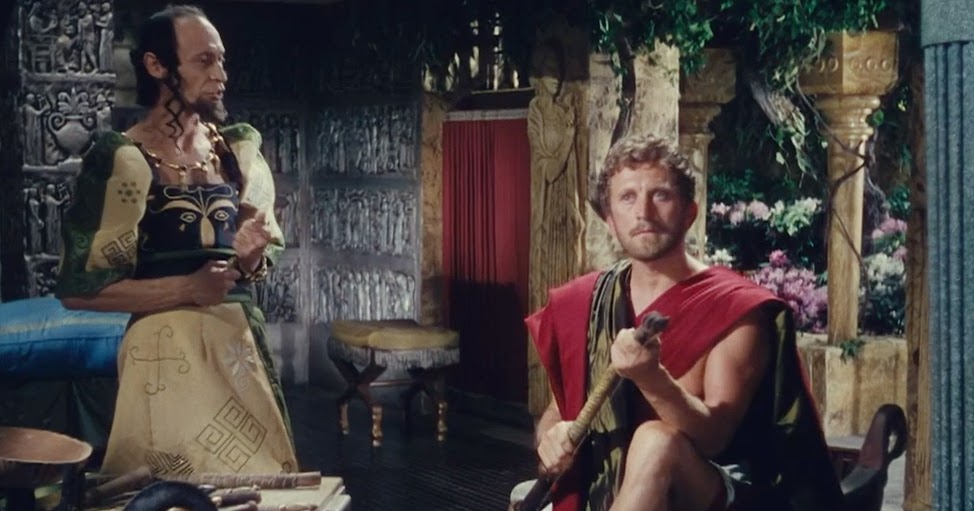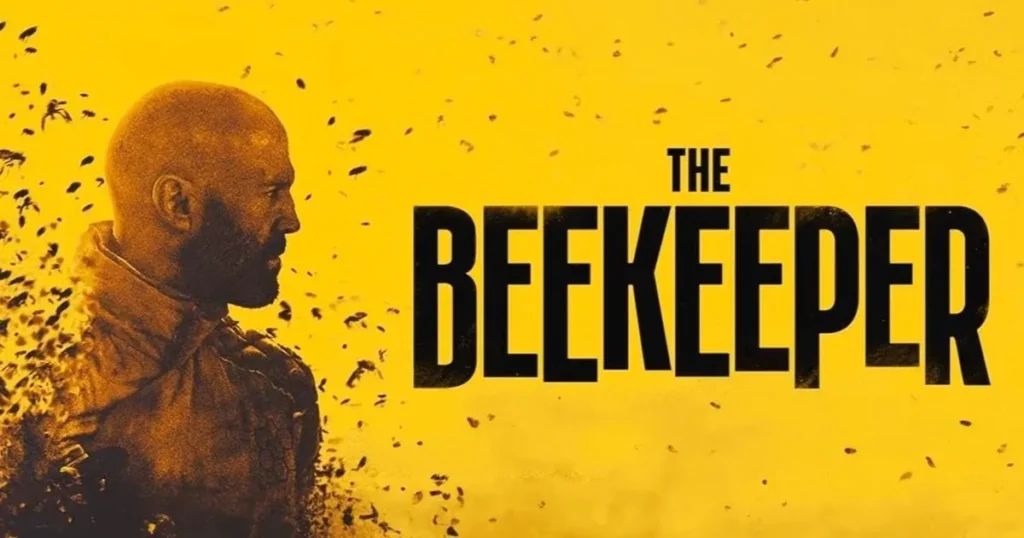Mario Camerini’s Ulysses is a fine if occasionally flawed rendition of Homer’s epic poem The Odyssey.
The Production: 3.5/5
With the growing popularity of sword and sandal epics during the 1950s, it’s no wonder that Homer’s epic poem The Odyssey would make great fodder for a screen adaptation. The 1954 screen version, an Italian-American co-production, was called Ulysses and was directed by Mario Camerini. While it’s far from a comprehensive digest of the many adventures the Greek hero had on his ten-year journey back to Ithaca after his victorious achievements in the Trojan War, Ulysses does touch on three of the poem’s most famous tales along with its framing story showing the hero’s wife at her wit’s end trying to maintain her virtue from a plethora of suitors determined to not only claim her as a new wife but to establish the victor as the new King of Ithaca.
Washing ashore on Phaeacia with complete memory loss, hero of the Trojan War Ulysses (Kirk Douglas) remembers nothing of his illustrious past. He becomes enamored of the island’s Princess Nausicaa (Rossana Podestà) and is betrothed to her, but as the days pass, slices of his memory begin to return reminding him not only of his cleverness in conceiving the Trojan Horse which brought an end to the decade-long war, but his lengthy series of adventures he and his crew had shared on their perilous journey back to Ithaca. Ulysses is unaware, however, that during his long absence, his wife Penelope (Silvana Mangano) and son Telemachus (Franco Interlenghi) have been under siege by haughty men who have taken over their palace in an attempt to set one of them up as Penelope’s next husband and the new King of Ithaca. Ulysses must now break his engagement and somehow return home and reclaim his kingdom and family.
No less than seven writers are credited with the screenplay for Ulysses, among them director Mario Camerini, Oscar-winner Ben Hecht, and acclaimed novelist Irwin Shaw. With so many cooks taking part in the screenplay’s preparation, it’s little wonder that there is a choppy quality to the continuity of the narrative. Though The Odyssey isn’t told in linear fashion either, it’s still a bit more organized than the script’s sequence of events (and the only amnesia present in it is from supernatural encounters which rob the men of their memories of home and lull them into a false sense of contentment for years at a time). We basically get four of the action sequences from the epic poem: the encounter with the mammoth Titan cyclops Polyphemus (Umberto Silvestri who also appears earlier as a champion wrestler whom Ulysses bests thus endearing him to the Phaecians), the Song of the Sirens (achieved through aural rather than visual detail), the encounter with the sorceress Circe who seduces Ulysses and turns his men into swine (Silvana Mangano doing double duty quite logically to make her enticements for Ulysses to remain with her more sensible since it would remind him of his loving wife), and the climactic face-off between Ulysses and the suitors who are there to cuckold him and steal his crown. All of these scenes are handled beautifully by director Camerini who uses special effects sparingly but effectively when necessary and achieves the inherent violence of the climax without resorting to stomach-churning gore or graphic close-ups (imagine how such a massacre would be handled today). There are also heart-rending moments near the end where Ulysses is first recognized on his return by his decrepit dog and a lovely scene where father and now-grown son reunite after a couple of decades apart.
Kirk Douglas was in his element in this kind of hearty adventure tale of derring-do and big emotions (Disney’s 20,000 Leagues Under the Sea would properly be his next film; the dubbing for him in the original Italian version of Ulysses is by an actor with a deeper voice than Kirk’s lending even further authority to his physical performance). Silvana Mangano is actually given top billing for her dual role (it helped that her husband was one of the film’s producers, Dino De Laurentiis), but she earns it with two strikingly different characterizations: the reticent and depressed Penelope and the haughty, calculating Circe. Anthony Quinn adds a lusty presence as Antinous, the most dynamic of the suitors, a couple of years before he and Kirk Douglas would be reunited as rival painters in Lust for Life. Franco Interlenghi offers frustrated and humiliated focus as son Telemachus, and Daniel Ivernel has some good moments as Ulysses’ second-in-command Eurylochus. Also effective in their smaller roles are Rossana Podestà as the besotted Nausicaa and Evi Maltagliati as Ulysses’ mother whose ghost is responsible for snapping her son back to reality and helping him realize where he needed to be.
Video: 4.5/5
3D Rating: NA
The film’s original 1.37:1 theatrical aspect ratio is faithfully rendered in both the English and Italian versions of the movie, selectable from the main menu. The 1080p resolution is achieved through the AVC codec. This 4K rendering is astonishing in its sharp detail, marvelous Technicolor (blues are especially vibrant), and superb contrast. While you might slyly glimpse just a bit of moiré in some netting and a corduroy coat, most of the image is rock solid. Black levels aren’t always the deepest of blacks, but they are for the most part very good. The white subtitles available for the Italian version (the one utilized for the majority of review purposes) are sharp and very easy to read. The movie has been divided into 9 chapters.
Audio: 4.5/5
The DTS-HD Master Audio 2.0 mono recording is typical from this era of Italian filmmaking. Both versions are post-dubbed, of course, and with that comes the airless quality and lack of echo that comes with post synched sound technology of the era. Engineers have removed any traces of age-related anomalies such as hiss, crackle, pops, and flutter. Dialogue, the background score by Alessandro Cicognini, and the sound effects are blended most professionally into a single track that lacks perhaps a bit of bass.
Special Features: 2.5/5
Audio Commentary: film critic and historian Tim Lucas offers an outstanding discussion of the movie filled with excellent research and learned opinion from years of studying Italian cinema and writing extensively on it.
Alternate U.S. Main Titles (2:55, SD)
Theatrical Trailer (1:09, SD)
Kino Trailers: The Vikings, Jack the Giant Killer, The Magic Sword.
Overall: 3.5/5
Mario Camerini’s Ulysses is a fine if occasionally flawed rendition of Homer’s epic poem The Odyssey. Kirk Douglas fans will surely grab for this disc which offers astonishing visual quality and some effective bonus material making it well worth owning.
Matt has been reviewing films and television professionally since 1974 and has been a member of Home Theater Forum’s reviewing staff since 2007, his reviews now numbering close to three thousand. During those years, he has also been a junior and senior high school English teacher earning numerous entries into Who’s Who Among America’s Educators and spent many years treading the community theater boards as an actor in everything from Agatha Christie mysteries to Stephen Sondheim musicals.
Post Disclaimer
Some of our content may contain marketing links, which means we will receive a commission for purchases made via those links. In our editorial content, these affiliate links appear automatically, and our editorial teams are not influenced by our affiliate partnerships. We work with several providers (currently Skimlinks and Amazon) to manage our affiliate relationships. You can find out more about their services by visiting their sites.







Similar threads